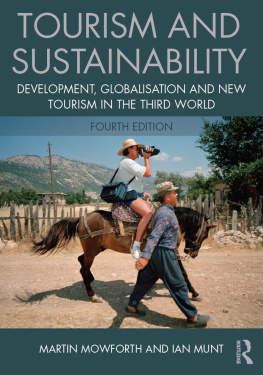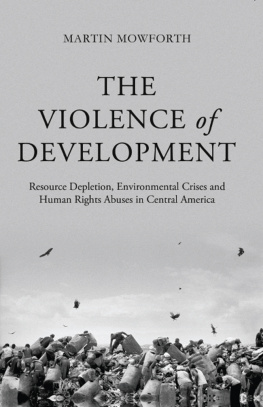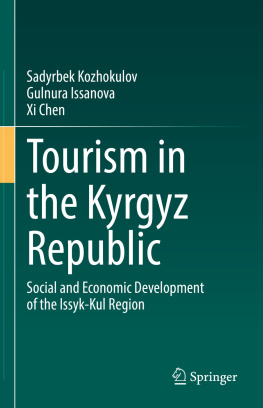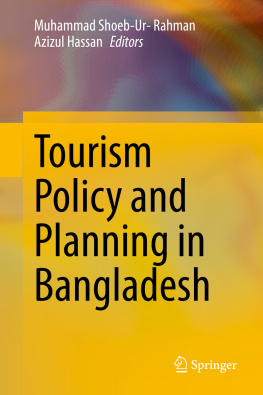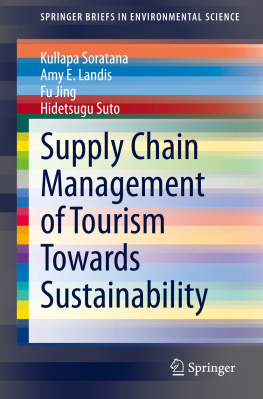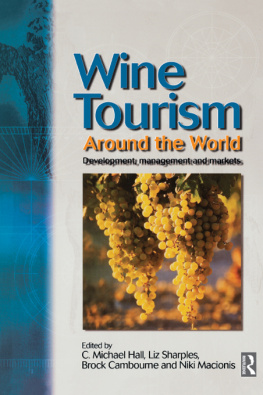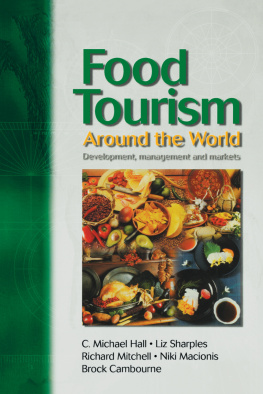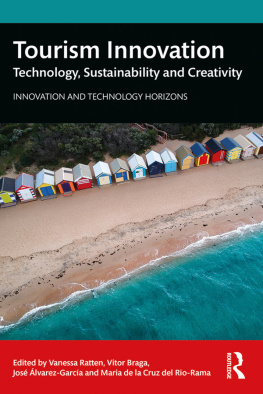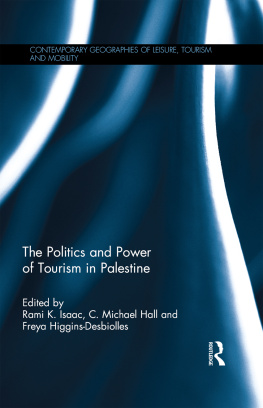
Tourism and Sustainability
In a report published by Oxfam in January 2014 it was noted that the worlds richest 85 people have as much wealth as the poorest 50 per cent of the worlds population. A year later that figure had been updated to just 80 people. It is a global unevenness through which the barriers to in-migration of Third World migrants to wealthy First World nations go ever higher, while the barriers to travel in the reverse direction are all but extinct.
So how exactly does tourism contribute to narrowing this glaring inequality and gap between the rich and the poor? Are ever-expanding tourism markets and the new, responsible, forms of tourism in particular a smoke-free, socioculturally sensitive form of human industrialisation? Is alternative tourism really a credible lever for lifting poverty-stricken countries out of the mire of global inequality, setting them on the right track to development and eliminating poverty?
Tourism and Sustainability critically explores and challenges what have emerged as the most significant universal geopolitical norms of the last half century development, globalisation and sustainability and through the lens of new forms of tourism demonstrates how we can better understand and get to grips with the rapidly changing new global order. The fourth edition has been extensively revised and updated, and benefits from the addition of new material on climate change and tourism.
Drawing on a range of examples from across the Third World, Mowforth and Munt expertly illustrate the social, economic and environmental conditions that continue to affect the tourism industry. With the first edition hailed by Geoffrey Wall as one of the most significant books produced on tourism [since the turn of the millennium], Tourism and Sustainability remains the essential resource for students of human geography, environmental sciences and studies, politics, development studies, anthropology and business studies as well as tourism itself.
Martin Mowforth is a freelance researcher specialising in issues of environment, development, sustainability and human rights in the region of Central America. He is also a part-time associate lecturer in human geography at Plymouth University, UK.
Ian Munt is a freelance human settlements specialist and has worked on projects with UN agencies, bilateral donors and non-governmental organisations in Central America, Africa, Asia and the Pacific, and Europe.
On previous editions
This book should be compulsory reading for all those engaged in tourism research. Erlet Cater, In Focus, Tourism Concern
One of the most significant books produced on tourism in the past few years. Geoffrey Wall, Annals of Tourism Research
A valuable and overdue contribution to a multi-disciplinary area. This book meets the challenge to say something clear and interesting in a quicksand of ambiguities. Professor John Lea, University of Sydney
Informative, stimulating and provocative, the book deserves to be read by a wide audience It is absolutely essential reading for all those serious scholars of tourism studies wishing to appreciate the bigger picture. Brian Wheeller, Annals of Tourism Research
The book is quite simply one of the most important theoretical contributions to the growing subdiscipline of tourism geography and is likely to be a mainstay for many years to come. Keith Debbage, Annals of the Association of American Geographers
A far-reaching, timely and quite penetrating critique of some of the forms of tourism that have emerged as a direct response to the clarion call for sustainable tourism development. Michael Parnwell, Journal of Development Studies
Tourism and Sustainability
Development, globalisation and new tourism in the Third World
Fourth edition
Martin Mowforth and Ian Munt

Fourth edition published in 2016
by Routledge
2 Park Square, Milton Park, Abingdon, Oxon OX14 4RN,
and by Routledge
711 Third Avenue, New York, NY 10017
Routledge is an imprint of the Taylor & Francis Group, an informa business
2016 Martin Mowforth and Ian Munt
The right of Martin Mowforth and Ian Munt to be identified as authors of this work has been asserted by them in accordance with sections 77 and 78 of the Copyright, Designs and Patents Act 1988.
All rights reserved. No part of this book may be reprinted or reproduced or utilised in any form or by any electronic, mechanical, or other means, now known or hereafter invented, including photocopying and recording, or in any information storage or retrieval system, without permission in writing from the publishers.
Trademark notice: Product or corporate names may be trademarks or registered trademarks, and are used only for identification and explanation without intent to infringe.
First edition published by Routledge 1998
Third edition published by Routledge 2009
British Library Cataloguing in Publication Data
A catalogue record for this book is available from the British Library
Library of Congress Cataloging in Publication Data
Mowforth, Martin.
Tourism and sustainability / Martin Mowforth and Ian Munt. -- Fourth edition.
pages cm
Includes bibliographical references and index.
1. Tourism--Developing countries. 2. Sustainable development--Developing countries. I. Munt, Ian. II. Title.
G155.D44M69 2016
338.4791091734--dc23
2015024606
ISBN: 978-1-138-01325-4 (hbk)
ISBN: 978-1-138-01326-1 (pbk)
ISBN: 978-1-315-79534-8 (ebk)
Typeset in Times New Roman and ITC Franklin Gothic
by Saxon Graphics Ltd, Derby
In loving memory of Herbie and Feathers, and for Matthew and Joseph
It is now well over twenty years since we started talking about and writing the first edition of this book, first published in 1998. As authors, we first bumped into one another in Belize City in 1992 and the seeds of Tourism and Sustainability were planted while enjoying Caribbean White the local rum. We shared a measured scepticism to what appeared to be at the time a rather uncritical approach to the expansion of tourism, but more especially the somewhat sanctimonious view that new tourism was intrinsically good, and that mass tourism was unequivocally bad.
New editions provide an opportunity to take a hard and critical look at what we have got wrong and what we believe still holds good. We have been lucky enough to receive the feedback of colleagues and students in many different countries, some supportive, others challenging us where they think we are off target. On its seventeenth birthday we have retained much of the original argument for this fourth edition. Of course, some of our original categorisations may have been offered as a challenge rather than as exhaustively and scientifically researched typologies: educated hunches designed to provoke critical discussion rather than prescriptive conclusions. And our seemingly pessimistic outlook may remain overcooked. And yet, the progress in promoting more locally rooted, more equitable, and environmentally responsive forms of tourism in the past twenty years has been painfully slow. Understanding why this is so, and overcoming obstacles to change, remains a fundamental challenge.
Some of the issues that we covered, at least briefly, in the first edition but that were relatively silent in the public realm are now right at the top of the global political agenda. Climate change and the need to end poverty, for example, are now daily topics of media discussion and central targets for the United Nations and member governments. The UN-led development goals coupled with global campaigns against poverty have imprinted this global challenge in the consciousness of many, and have demanded a response of agencies such as the World Tourism Organization.
Next page
